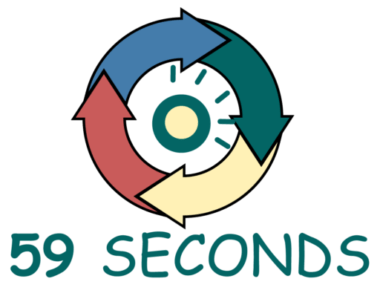What is the Scrum Declaration Of Interdependence and what does it mean for the Agile Product Owner Role? What is written in the declaration and how does it assist in the delivery of value.

Scrum Declaration Of Interdependence
A 59 Seconds Agile Video Animation
The Scrum Declaration Of Interdependence For Product Owners – Part 2
A 59 Seconds Agile Article
What concepts does the Scrum Declaration of Interdependence address?
However, even with close maintenance of the Product Backlog, the Product Owner must expect uncertainty. It is simply the nature of the beast that development is not risk-free and there are uncertainties within any development activity. Dividing work into small, value-driven increments enables the scrum team to operate on the principles of anticipation and adaptation.
Near the beginning of a project, uncertainty and risks are high. Customers may not know exactly what they want, or even what their highest priority requirements are. However as the project proceeds, and as the customers learn more about the product through direct involvement, their feedback and comments help to reduce the risks and uncertainties of the project.
The Scrum Declaration Of Interdependence and Facilitating an Effective Development Team
To facilitate an effective development team, the Product Owner needs to unleash creativity and innovation. A good development team is full of variety, and different developers are going to be good at different tasks. One of the core tenants of the Agile Manifesto is the idea that “The best architectures, requirements, and designs emerge from self-organizing teams”. Therefore, the development team will do their best work when allowed to organize themselves appropriately. Any developer can follow explicit instructions to complete an assignment, but they can often come up with a superior or faster option when given room to work with the Product Owner and Scrum Master.
Sharing responsibility across the entire team creates accountability for the project results throughout the team. This shared responsibility helps to increase the feeling of ownership within the team and boost performance. The Product Owner is responsible for ensuring that the product vision and the feature priorities are clearly understood to foster the best performance.

Finally, a Product Owner should improve effectiveness and reliability by implementing strategies, processes, and practices. Don’t force developers to manage, or stakeholders to prioritize the backlog. Allow each part of the team to do what they’re good at, and handle the overarching goal for them.
Why is the Scrum Declaration of Interdependence an Important Document for the Product Owner?
The importance of these concepts for the Product Owner lies in their effectiveness for the role. They encourage a Product Owner to do their job well, and not just get their job done. Without a good Product Owner, development may still get done, and stakeholders will eventually get features, but the process will not be effective. ROI will suffer, developers will get bogged down and frustrated with inconsistent work, and stakeholders will not receive regular progress. It is the duty of the Product Owner to facilitate the entire process, like a well-oiled machine.
Our Favourite Agile Books
We found these books great for finding out more information on Agile Scrum:
Why is the Scrum Declaration of Interdependence Important for Other Roles in Agile?
So that means that the Declaration of Interdependence has no bearing on other parts of Agile Projects, right? Far from it. A team of developers isn’t a single entity, removed from the Agile process, they are right at the center of the action. An effective Product Owner, must implement the concepts in the Declaration of Interdependence, as well as encouraging and equipping the development team to efficiently produce quality work.
Similarly, stakeholders rely on the Product Owner to effectively maintain the Product Backlog and prioritize work for the development team. Agile Project Management isn’t just a list of requirements in a checklist that get crossed off one by one. It is a dynamic environment that makes sure the product is exactly what the customers want.
Though the Declaration of Interdependence is a document focused on Product Owners, it benefits all facets of Agile Projects. An effective Product Owner streamlines the entire process and encourages open and honest communication between stakeholders and developers. With a good Product Owner leading the ship, developers can create products that satisfy stakeholder requirements in a timely fashion.
Prev <— Continue Reading —> Next
Learn More: Agile Daily Stand-Up
User Stories Applied
A 59 Seconds Agile Book Review
User Stories Applied by Mike Cohn is one of our favourite books on Agile User Stories. The book starts with an overview into user stories, and details what a user story is and the different aspects of them. He then discusses how to go about writing a user story, and provides details of the INVEST criteria that can be used to determine if the story is meeting all of its objectives. Next Mike gives an in depth discussion of who user stories are written for and where to begin when gathering the details for them. The book then discusses acceptance testing user stories, including how to go about specifying these criteria and the responsibilities of the development team and customers during this process.
Prev <— Continue Reading —> Next
Learn More: Agile Daily Stand-Up
The Daily Stand-Up Meeting
A 59 Seconds Agile Infographic


